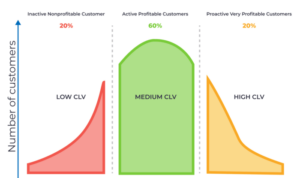Small business insurance takes center stage in the world of entrepreneurship, offering vital protection for businesses of all sizes. From safeguarding against unforeseen risks to ensuring peace of mind, understanding the ins and outs of insurance is key for any savvy business owner.
In this guide, we’ll dive into the different types of insurance policies available, cost factors to consider, and how to choose the right insurance provider for your specific needs. Get ready to elevate your business game with the ultimate insurance knowledge!
Overview of Small Business Insurance
Small business insurance is a type of coverage designed to protect small businesses from financial losses due to unexpected events such as property damage, liability claims, or employee injuries. It provides a safety net for entrepreneurs and business owners, helping them manage risks and uncertainties in their day-to-day operations.
Importance of Small Business Insurance
Having insurance for your small business is crucial for several reasons:
- Protects your assets: Insurance can help safeguard your business property, equipment, and inventory in case of theft, fire, or other disasters.
- Liability coverage: It can protect your business from legal claims and lawsuits resulting from accidents, injuries, or negligence.
- Ensures business continuity: With the right insurance coverage, you can minimize financial losses and keep your business running smoothly in the face of unexpected events.
- Compliance with regulations: Some types of insurance, such as workers’ compensation or commercial auto insurance, are required by law in many states.
Common Types of Insurance Coverage for Small Businesses
- General Liability Insurance: Covers claims of bodily injury, property damage, and advertising injury.
- Property Insurance: Protects your business property, including buildings, equipment, and inventory, against damage or theft.
- Workers’ Compensation Insurance: Provides benefits to employees who are injured or become ill while on the job.
- Business Interruption Insurance: Helps cover lost income and expenses when your business operations are disrupted due to a covered event.
Types of Small Business Insurance
When it comes to protecting your small business, having the right insurance coverage is crucial. There are several types of insurance policies available that cater to different needs and risks. Here are some common types of small business insurance to consider:
General Liability Insurance
General liability insurance is essential for small businesses as it provides coverage for third-party bodily injury, property damage, and advertising injury claims. This type of insurance protects your business from lawsuits and financial losses resulting from accidents or negligence.
Property Insurance
Property insurance is designed to protect your business property, including buildings, equipment, inventory, and furniture, from risks such as fire, theft, vandalism, and natural disasters. Having property insurance ensures that your business assets are covered in case of any unforeseen events.
Professional Liability Insurance
Professional liability insurance, also known as errors and omissions insurance, is crucial for businesses that provide services or advice to clients. This type of insurance protects your business from claims of negligence, errors, or omissions that may result in financial losses for your clients.
Workers’ Compensation Insurance, Small business insurance
Workers’ compensation insurance is mandatory for businesses with employees. It provides coverage for medical expenses, lost wages, and legal fees in case an employee gets injured or falls ill while on the job. Having workers’ compensation insurance protects both your employees and your business.
Business Interruption Insurance
Business interruption insurance is designed to provide coverage for lost income and extra expenses in case your business operations are disrupted due to a covered event, such as a fire or natural disaster. This type of insurance helps your business stay afloat during challenging times.
Commercial Auto Insurance
Commercial auto insurance is essential for businesses that use vehicles for work purposes. This type of insurance provides coverage for vehicles used for business activities, including accidents, theft, and damage. Having commercial auto insurance ensures that your business is protected on the road.
Choosing the Right Insurance Coverage
To determine the right insurance coverage for your small business, assess your specific risks and needs. Consider the nature of your business, the industry you operate in, the size of your business, and the number of employees you have. Consulting with an insurance agent or broker can help you tailor the right insurance package that meets your unique requirements.
Cost Factors and Considerations

When it comes to small business insurance, the cost can vary based on several factors that influence the overall price. Understanding these factors and considering different aspects can help small business owners make informed decisions about their insurance needs.
Factors Influencing Insurance Costs
- The type of business: Different industries have varying levels of risk, affecting insurance premiums. For example, a construction company may have higher premiums than a consulting firm.
- Business size and revenue: Larger businesses with higher revenue may pay more for insurance due to increased exposure and potential claims.
- Location: The geographical area where the business operates can impact insurance costs, especially in areas prone to natural disasters or higher crime rates.
- Claims history: A history of previous claims can lead to higher premiums, as it indicates a higher risk for insurers.
Comparing Insurance Costs by Business Type
- Retail businesses: Retail establishments may face risks related to customer injuries or property damage, resulting in specific insurance needs that can affect costs.
- Service-based businesses: Service providers may require professional liability insurance to protect against claims of negligence or errors, which can impact insurance expenses.
- Online businesses: E-commerce businesses may have unique risks related to cyber threats and data breaches, leading to additional insurance requirements and cost considerations.
Tips to Reduce Insurance Costs
- Shop around for quotes: Compare insurance offerings from multiple providers to find the best coverage at competitive rates.
- Bundle policies: Some insurers offer discounts for bundling multiple types of coverage, such as combining general liability and property insurance.
- Focus on risk management: Implementing safety protocols and risk reduction strategies can lower the likelihood of claims, potentially reducing insurance costs over time.
- Review coverage regularly: As your business evolves, reassess your insurance needs to ensure you are not paying for unnecessary coverage or missing essential protections.
Choosing the Right Insurance Provider: Small Business Insurance

When it comes to selecting an insurance provider for your small business, there are several key factors to consider. From coverage options to customer service and cost, finding the right insurance provider is crucial for protecting your business. Here, we will discuss how small business owners can evaluate and choose the best insurance provider for their specific needs.
Coverage Options
- Before choosing an insurance provider, assess the coverage options they offer. Make sure the policies align with the unique risks and needs of your small business.
- Look for providers that offer a wide range of coverage options, including general liability, property insurance, workers’ compensation, and professional liability.
- Consider any industry-specific coverage that may be necessary for your business, such as cyber liability insurance for online businesses or product liability insurance for manufacturers.
Customer Service
- Customer service is another important factor to consider when choosing an insurance provider. A responsive and helpful customer service team can make a big difference when you need to file a claim or have questions about your policy.
- Research online reviews and ratings to get an idea of the level of customer service provided by different insurance companies. Look for providers that have a reputation for excellent customer service.
- Consider reaching out to each insurance provider directly to ask questions and assess their responsiveness and willingness to help.
Cost Comparison
- While cost should not be the only factor in choosing an insurance provider, it is important to compare quotes from different companies to ensure you are getting a competitive rate.
- Consider the overall value of the coverage offered by each provider, taking into account the cost of premiums, deductibles, and coverage limits.
- Ask about any discounts or bundling options that may help lower the cost of your insurance premiums without sacrificing coverage.





